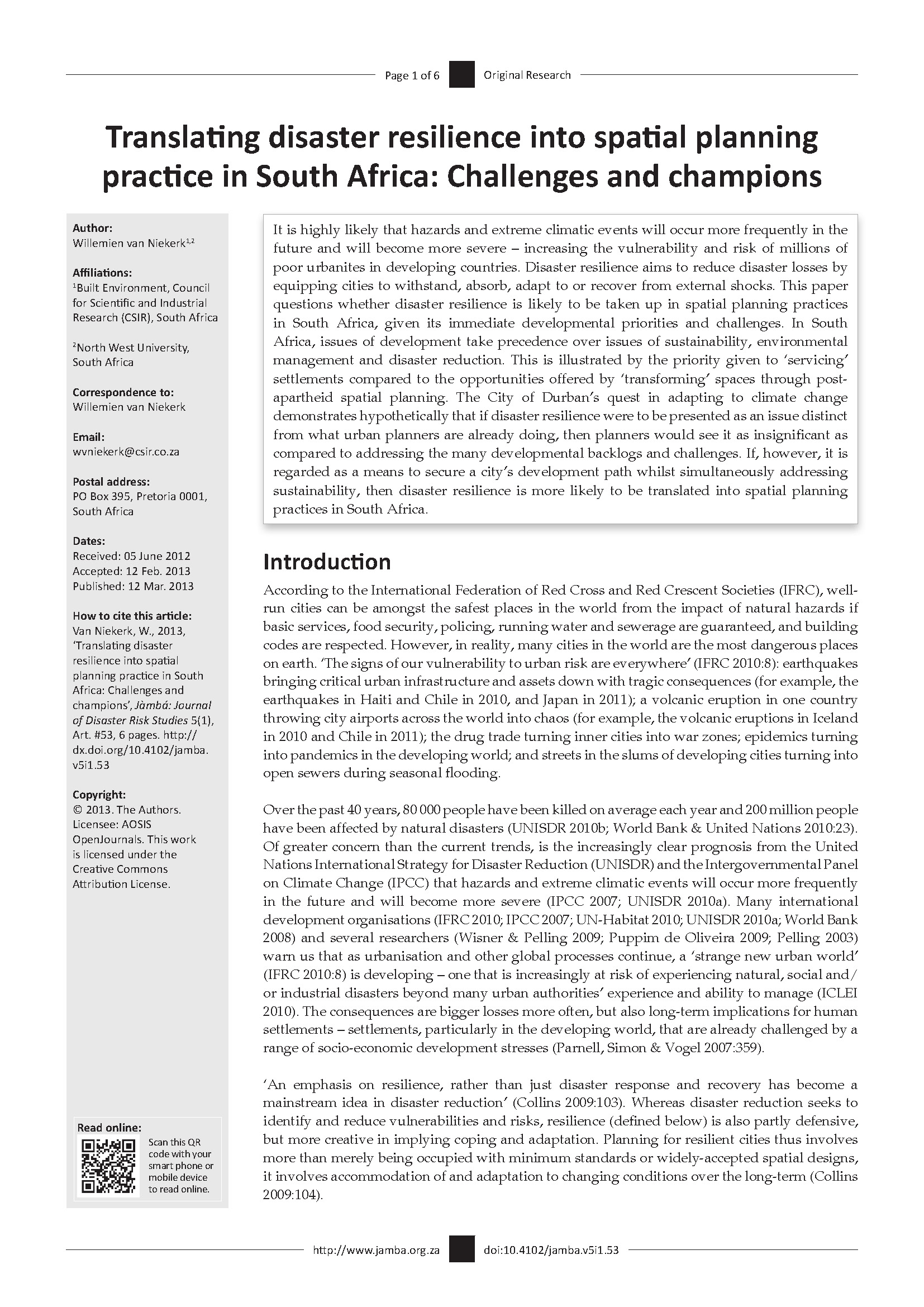Translating disaster resilience into spatial planning practice in South Africa
Challenges and champions

01 March 2013
English
uKESA Librarian, Willemien van Niekerk
Journal article
Council for Scientific and Industrial Research
Africa
It is highly likely that hazards and extreme climatic events will occur more frequently in the future and will become more severe – increasing the vulnerability and risk of millions of poor urbanites in developing countries. Disaster resilience aims to reduce disaster losses by equipping cities to withstand, absorb, adapt to or recover from external shocks. This paper questions whether disaster resilience is likely to be taken up in spatial planning practices in South Africa, given its immediate developmental priorities and challenges. In South Africa, issues of development take precedence over issues of sustainability, environmental management and disaster reduction. This is illustrated by the priority given to ‘servicing’ settlements compared to the opportunities offered by ‘transforming’ spaces through postapartheid spatial planning.
The City of Durban’s quest in adapting to climate change demonstrates hypothetically that if disaster resilience were to be presented as an issue distinct from what urban planners are already doing, then planners would see it as insignificant as compared to addressing the many developmental backlogs and challenges. If, however, it is regarded as a means to secure a city’s development path whilst simultaneously addressing sustainability, then disaster resilience is more likely to be translated into spatial planning practices in South Africa.



Comments